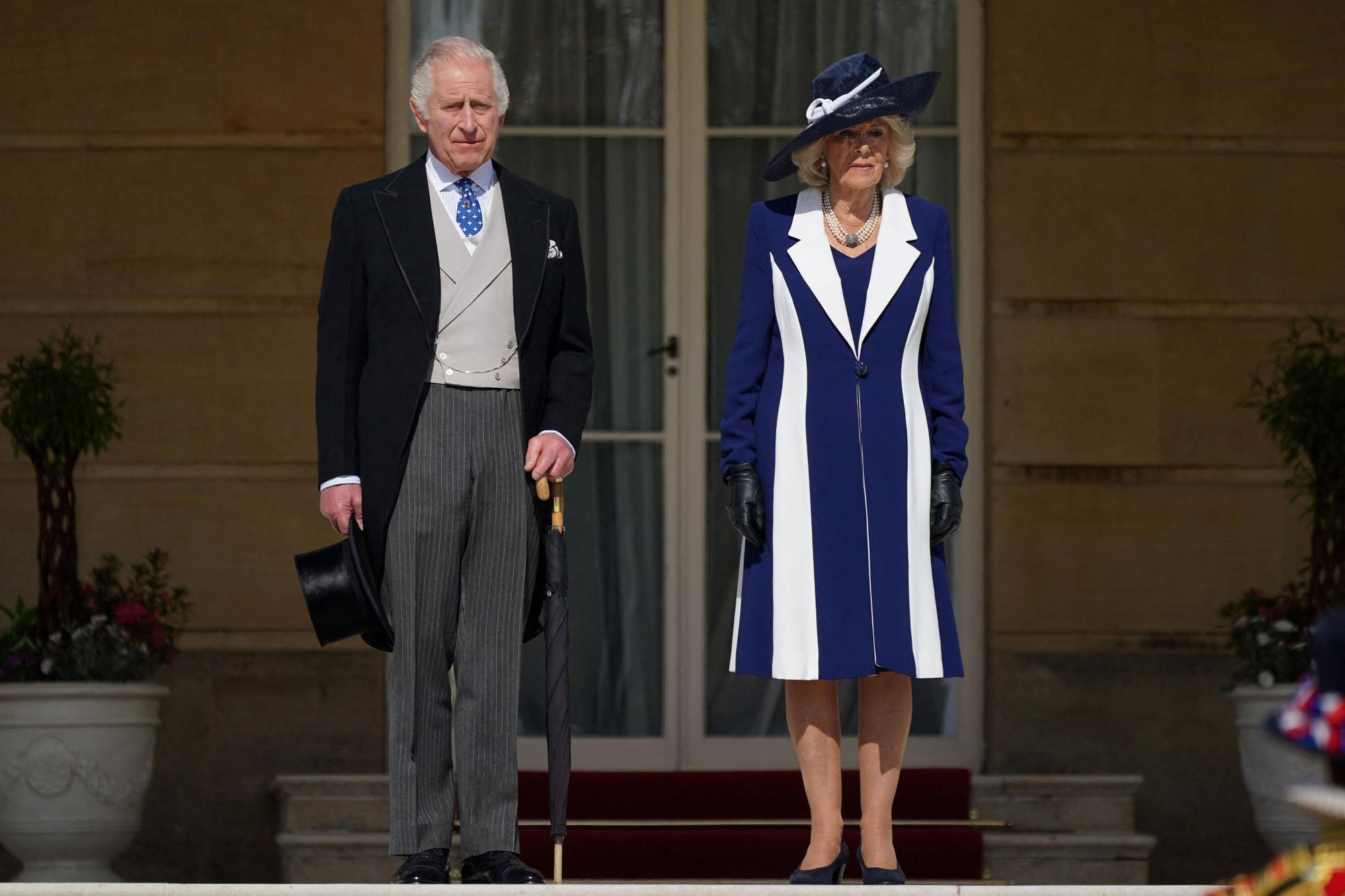England and their traditions. The whole world. The uniforms (and the hats) of the ‘Beefeaters’ have not changed much since 1485. The king has not been able to enter the House of Commons since 1642, when Charles I tried to arrest five MPs. And no matter what day the king is born or queen, as his “official” birthday has been celebrated since 1805 on the second weekend of June, taking advantage of the good weather. Many of the relics date back to the imperial era. But there are traditions and traditions. And while some are displayed with pride – like five o’clock tea – others raise more suspicion, such as the fact that income taxes for the super-rich hasn’t ‘changed’ since 1799. Of course, the beneficiaries now are other people.
Minister of Finance, Rishi Sunakfavorite in his day to replace Boris Johnson, all kinds of leadership possibilities are loaded after the controversy that arose around his wife. Akshata Murthy, daughter of a millionaire businessman, gets £11.5 million in annual dividends from her father’s technology company Infosys in India without paying any taxes in the UK. At a time when the UK is facing its biggest tax burden hike since the 1950s and inflation is at 9%, the news is not so great.
Celia Maza. London
But Murthy didn’t do anything illegal. only found in ‘non-dom’ state, a term that alludes to imperialist politics which is still maintained today. Non-domes can live in the UK, but are considered by the tax authorities to be ‘not domiciled’ in that country and therefore pay no tax on income earned from abroad. It is therefore ironic to say the least that an Indian citizen is now taking advantage of the rules originally enacted to protect the money that the British imperialists earned in India.
Someone without this status who will earn as much as Murthy last year had to pay almost 5 million pounds in UK income taxes, plus a further £250,000 in Social Security matching contributions. In fact, the increase in taxes imposed by the Chancellor will harm his family additional £150,000 tax if it has not been declared ‘non-dom’.
imperial heritage
In the late 18th century, the so-called ‘sugar colonies’ in Great Britain were still the most lucrative imperial possessions. The income tax of 1799, the first tax created for England, exempted non-residents from paying income earned abroad. Thousands of British men and women owned farms (or parts of them) in the colonies, where slaves worked to produce sugar, molasses, rum, indigo, coffee, and cotton. The tax benefits reflected the power they had at the time.
The ‘non-dom’ exception includes both plantation owners who can claim that his time in England is only temporary, as well as thousands of British people residing in the West Indies and South Asia. The formula ensured that they maintained the empire’s economy, while providing goods that would be paid for by customs and excise to keep the government running. But now, after all, it is a new generation of international elite (not just Indians) who using imperial relics like that for their own benefit. And that’s not in the least because, unlike UK residents who are subject to a 40% inheritance tax on their world wealth, ‘non-doms’ owning their foreign assets are also exempt from this tax.
:format(jpg)/f.elconfidencial.com%2Foriginal%2Fd95%2Fd45%2Fc6e%2Fd95d45c6ec10930e1fa9a5c900cd486c.jpg)
Celia Maza. London
For the first seven years, they can claim their exemption for free. However, someone who has been a non-dom for at least seven of the previous nine tax years have to pay £30,000 a year. After you’ve been non-dominant for at least 12 of the previous 14 tax years, the salary increases to £60,000 a year. Having lived in the UK for 15 of the previous 20 tax years, they are deemed to be domiciled in that country and forfeit exemptions.
But with Indians there are exceptions. They can keep their foreign assets free from inheritance tax indefinitely. This is related to loophole in the 1956 treaty between Britain and India. New Delhi is determined to have priority over London for recording people who are domiciled in India. New Delhi abolished this inheritance tax in 1985, but any non-UK asset owned by a person domiciled in India remains exempt from this tax in the UK. On the other hand, someone who is domiciled in the UK pay inheritance tax on assets worldwide. Unique is one of the best kept secrets in tax planning.
:format(jpg)/f.elconfidencial.com%2Foriginal%2F5ac%2F14f%2F973%2F5ac14f9735c9af862fc37baef6019e36.jpg)
Alvaro van den Brule
Now, at a time when taxes skyrocket to highest level since 1950s and where more than 2 million adults in the UK can no longer afford to eat every day, this opens up a debate about the extent to which the rules of the game for the super-rich should be maintained or changed.
Tom Wallace, chief tax officer at WTT Consulting, recently claimed in the Financial Times that Murty “did not do” there’s nothing that a lot of people don’t do and it is done within the rules, as parliament intended.” But others such as Robert Palmer, chief executive of Tax Justice UK, argue that “taxes are about political choice” so “Governments should end tax loopholes and make sure the rich pay their share”. . Tobias Ellwood himself, conservative chairman of the House of Commons defense election committee, insists that the system is “out of date” and “needs to be revised.
After all, it wasn’t without that the formula was introduced in eighteenth century for protect British colonial interests in India, now used by wealthier Indians to avoid having to pay taxes in England.
England and their traditions. The whole world. The uniforms (and the hats) of the ‘Beefeaters’ have not changed much since 1485. The king has not been able to enter the House of Commons since 1642, when Charles I tried to arrest five MPs. And no matter what day the king is born or queen, as his “official” birthday has been celebrated since 1805 on the second weekend of June, taking advantage of the good weather. Many of the relics date back to the imperial era. But there are traditions and traditions. And while some are displayed with pride – like five o’clock tea – others raise more suspicion, such as the fact that income taxes for the super-rich hasn’t ‘changed’ since 1799. Of course, the beneficiaries now are other people.

“Web specialist. Incurable twitteraholic. Explorer. Organizer. Internet nerd. Avid student.”

:format(jpg):quality(99):watermark(f.elconfidencial.com/file/bae/eea/fde/baeeeafde1b3229287b0c008f7602058.png,0,315,1)/f.elconfidencial.com/original/8db/ee2/c44/8dbee2c44c288ca857325c2ebffc7db5.jpg)





